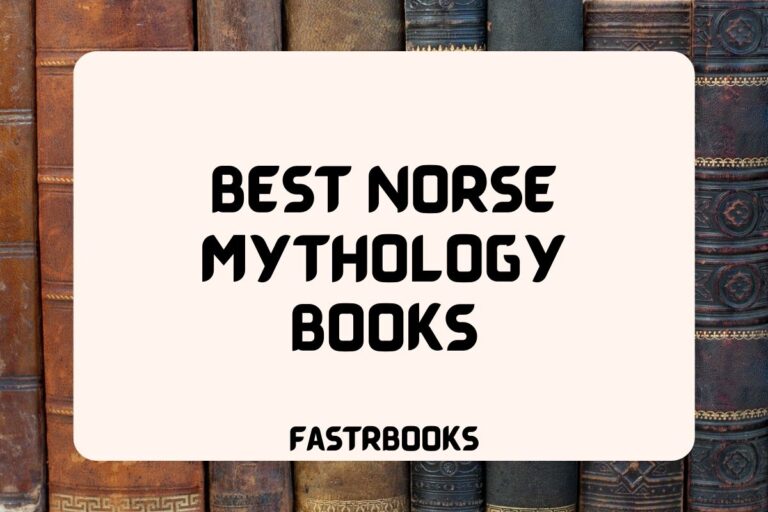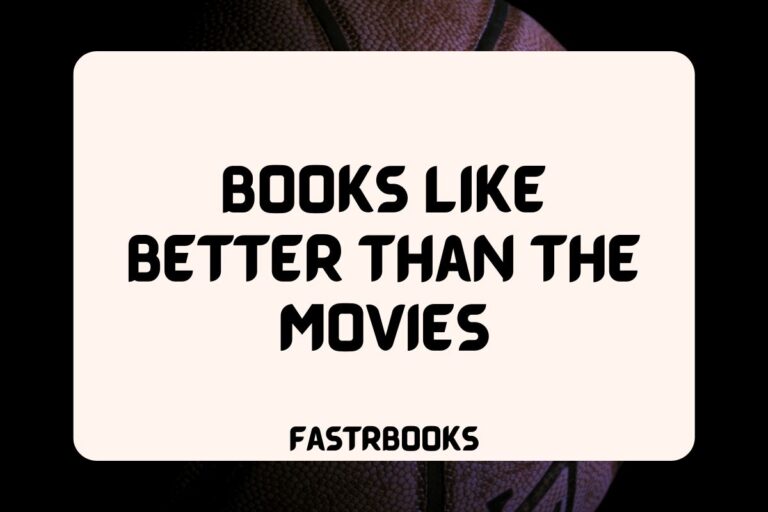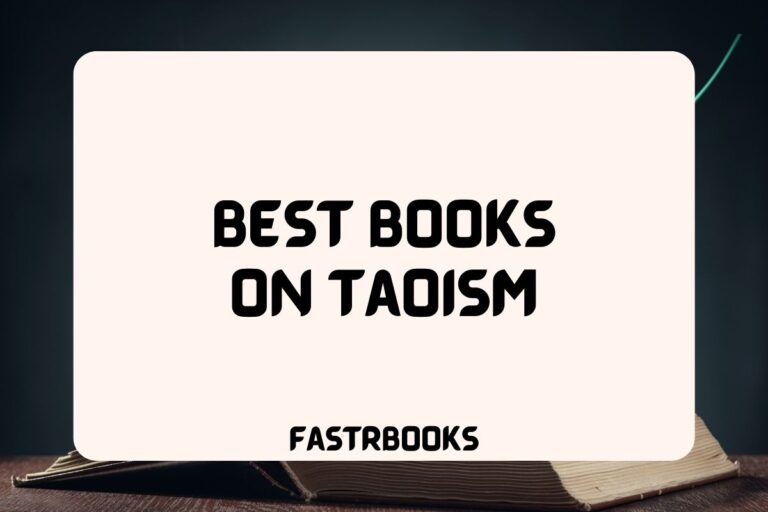48 Books You Must Read Before You Die

Reading is a journey that allows us to explore different worlds, gain new perspectives, and connect with the human experience in profound ways. While there are countless books to choose from, some stand out as timeless classics and must-reads for any avid reader.
Here, I have compiled a list of 48 of the best books to read before you die.
These selections span various genres and time periods, offering something for every reader’s taste.
Let’s start exploring them one at a time.
48 Must-Read Books Before You Die
1. “The Alchemist” by Paulo Coelho
This is a captivating tale of Santiago, an Andalusian shepherd boy who dreams of discovering a worldly treasure located somewhere beyond the Egyptian pyramids.
His quest leads him to riches far different and more satisfying than he ever imagined.
Santiago’s journey teaches us about the essential wisdom of listening to our hearts, recognizing opportunity, and following our dreams.
2. “1984” by George Orwell
A startling and haunting vision of the world, Orwell’s 1984 is a powerful warning against the dangers of a totalitarian society.
Set in a dystopian future where critical thought is suppressed under a totalitarian regime, this is a book that explores themes of surveillance, individuality, and the power of truth versus propaganda.
It’s a profound commentary on the potential for technology to be used as a tool of manipulation and control.
3. “Pride and Prejudice” by Jane Austen
This novel is a witty exploration of the social mores of early 19th-century England, focusing particularly on the relationship between Elizabeth Bennet, a young woman of modest means, and the wealthy and aloof Mr. Darcy.
It’s a tale that delves into issues of marriage, morality, and misconceptions, highlighting the limitations and expectations placed on women of that time.
4. “A Tale of Two Cities” by Charles Dickens
Set against the backdrop of the French Revolution, this is a story of chaos, justice, and revolution.
It chronicles the lives of Charles Darnay and Sydney Carton – one a French aristocrat, the other a dissolute English lawyer.
Their lives intertwine in a narrative about love, sacrifice, and redemption, providing insights into the conditions that led to the revolutionary tumult in France.
5. “The Picture of Dorian Gray” by Oscar Wilde
A blend of gothic horror and Victorian morality, this novel tells the story of Dorian Gray, a man whose image ages in a portrait while he remains young and handsome.
Exploring themes of vanity, moral duplicity, and the nature of beauty, Wilde’s only novel is a brilliant and provocative piece of literature that critiques the superficiality and moral hypocrisy of society.
6. “The Great Gatsby” by F. Scott Fitzgerald
Set in the Jazz Age on Long Island, this novel explores themes of decadence, idealism, and resistance to change. Through the narrative of Nick Carraway, we witness the tragic story of Jay Gatsby and his obsession with the elusive and married Daisy Buchanan.
It’s a vivid and cautionary tale about the American Dream, exploring the unattainable nature of it and the destruction it brings when pursued relentlessly.
7. “War and Peace” by Leo Tolstoy
A monumental work in world literature, this novel intertwines the lives of families against the backdrop of the Napoleonic Wars.
Through the experiences of its characters, Tolstoy delves into themes of war, peace, love, and loss, offering profound philosophical insights on humanity.
The novel is not only an epic history but also an exploration of the Russian spirit and psyche.
8. “The Handmaid’s Tale” by Margaret Atwood
Set in a dystopian future where a totalitarian regime has overthrown the United States government, this novel explores themes of power, gender, and religious politics.
The story is told through the eyes of Offred, a Handmaid in the Republic of Gilead, where women are subjugated and used solely for reproduction.
Atwood’s chilling narrative warns of the dangers of extremism and the loss of individual rights.
9. “Middlemarch” by George Eliot
A richly textured exploration of life in a provincial English town during the early 19th century.
Eliot’s novel intertwines various stories, focusing primarily on the idealistic Dorothea Brooke, whose desire for intellectual fulfillment leads her into a disastrous marriage.
The novel is celebrated for its deep psychological insight and detailed portrayal of social change.
10. “The Sound and the Fury” by William Faulkner
This novel tells the story of the Compson family’s decline and fall in the American South.
Faulkner employs a range of narrative techniques, including stream of consciousness, to explore themes of time, memory, and history.
The novel’s complex structure and depth of emotion make it a landmark of modernist literature.
11. “The Trial” by Franz Kafka
A nightmarish exploration of anxiety and alienation, this novel follows Josef K., who is arrested and prosecuted by a remote, inaccessible authority, with the nature of his crime revealed neither to him nor to the reader.
Kafka’s exploration of bureaucratic absurdity and the illogicality of totalitarian systems makes it a profoundly unsettling but essential read.
12. “Invisible Man” by Ralph Ellison
A powerful story about a young African American man’s quest for identity and understanding in a world filled with racial prejudice.
This novel is a profound exploration of individuality and society, using a mix of realism and surrealism to highlight the social and intellectual issues facing African Americans in the early 20th century.
13. “The Catcher in the Rye” by J.D. Salinger
This novel is a deep dive into teenage angst and alienation, narrated by the iconic character Holden Caulfield.
Disillusioned and distrusting of the adult world, Holden navigates the challenges of growing up while dealing with the complexities of innocence, identity, and belonging.
14. “To Kill a Mockingbird” by Harper Lee
Set in the Deep South during the 1930s, this novel tackles the issues of racial injustice and the destruction of innocence.
Through the eyes of the young narrator, Scout Finch, the story unfolds around her father Atticus Finch, a lawyer who defends a black man unjustly accused of rape.
It’s a powerful exploration of morality, ethics, and the human condition.
15. “The Brothers Karamazov” by Fyodor Dostoevsky
A philosophical novel that delves into the depths of human psychology and ethics, exploring themes of faith, doubt, and reason. The story revolves around the murder of Fyodor Pavlovich Karamazov and the subsequent trial of his sons.
This masterpiece wrestles with profound existential questions and the nature of free will.
16. “Brave New World” by Aldous Huxley
A visionary and unsettling novel set in a seemingly perfect global society with no war, pain, or dissent. Individuals are genetically engineered and conditioned for their roles in life.
The story questions the cost of stability and the loss of individuality, challenging the reader to consider the value of personal freedom and the true meaning of happiness.
17. “The Grapes of Wrath” by John Steinbeck
This powerful novel tells the story of the Joad family, Oklahoman farmers displaced during the Great Depression, who journey westward to California in search of work and dignity.
Steinbeck vividly portrays the hardships of the Dust Bowl and the exploitation of migrant laborers, offering a searing critique of American capitalism and a compassionate glimpse into human resilience.
18. “Things Fall Apart” by Chinua Achebe
Set in pre-colonial Nigeria, this novel tells the story of Okonkwo, a respected Igbo warrior and leader.
Achebe masterfully narrates the impact of European colonialism on traditional African society, exploring themes of identity, cultural change, and the clash between traditional values and new influences.
It’s a seminal work in African literature, offering an authentic voice that counters colonial narratives.
19. “Gulliver’s Travels” by Jonathan Swift
More than just a fantastical adventure, this novel is a scathing satire on human nature and the pitfalls of political systems.
Through the voyages of Lemuel Gulliver, Swift critiques the follies and vices of his time, including the pettiness of political disputes, the arbitrary nature of societal norms, and the inherent flaws of mankind.
20. “One Hundred Years of Solitude” by Gabriel García Márquez
A magnificent blend of reality and fantasy, this novel chronicles the rise and fall of the Buendía family in the mythical town of Macondo.
García Márquez’s magical realism weaves a tapestry of passion, power, and the cyclical nature of history, exploring themes of solitude, destiny, and the inescapability of one’s heritage.
21. “Slaughterhouse-Five” by Kurt Vonnegut
Blending science fiction with historical fact, Vonnegut’s novel is a darkly comedic exploration of the trauma of war.
Following the story of Billy Pilgrim, a WWII veteran who becomes “unstuck in time,” the narrative offers a fragmented and surreal journey through key moments of his life, including the firebombing of Dresden, questioning the nature of free will and the absurdity of war.
22. “Don Quixote” by Miguel de Cervantes
Often regarded as the first modern novel, this work tells the story of an aging man who, driven by tales of chivalry, sets out on a quest for knightly adventure accompanied by his squire, Sancho Panza.
The novel is both a humorous critique of romantic literature and a poignant exploration of idealism versus reality.
23. “Jane Eyre” by Charlotte Brontë
A groundbreaking novel in its exploration of a woman’s quest for self-fulfillment, independence, and moral integrity.
The narrative follows the life of Jane Eyre, an orphan who overcomes a harsh childhood to become a governess and falls in love with her enigmatic employer, Mr. Rochester.
The novel is celebrated for its emotional depth, social criticism, and its portrayal of a strong, complex female protagonist.
24. “Rebecca” by Daphne du Maurier
A spellbinding gothic novel, “Rebecca” is a tale of romance and suspense.
The young, naive narrator, newly married to the wealthy and brooding Maxim de Winter, finds herself overshadowed by the lingering presence of his first wife, Rebecca.
The book is a masterful exploration of memory, identity, and the destructive power of the past.
25. “The Divine Comedy” by Dante Alighieri
An epic poem that is one of the towering achievements of world literature, “The Divine Comedy” describes Dante’s allegorical journey through Hell (Inferno), Purgatory (Purgatorio), and Paradise (Paradiso).
This journey is not only a vivid and imaginative depiction of the afterlife but also a profound reflection on human sin, redemption, and the quest for divine love.
26. “Wuthering Heights” by Emily Brontë
A tale of passionate and tumultuous love, this novel explores the deep, often destructive, relationship between the enigmatic Heathcliff and spirited Catherine Earnshaw.
Set against the moors of Yorkshire, the story delves into themes of revenge, social class, and the supernatural, offering a profound examination of the complexities of human emotion and the consequences of unbridled passion.
27. “The Stranger” by Albert Camus
This existential novel follows the life of Meursault, an emotionally detached French Algerian who commits a senseless murder. The story is a deep exploration of absurdism, as Meursault confronts the irrationality of existence and society’s demand for meaning where none can be found.
It’s a philosophical inquiry into the nature of human detachment and the concept of morality in a meaningless world.
28. “A Passage to India” by E.M. Forster
Set against the backdrop of the British Raj and the Indian independence movement in the 1920s, this novel explores the racial tensions and prejudices between Indians and the British who ruled India.
The story revolves around the alleged assault of a British woman and the subsequent trial, probing the complexities of colonialism and the difficulty of forming meaningful relationships across cultural divides.
29. “Moby-Dick” by Herman Melville
This epic tale of obsession and revenge follows the journey of Captain Ahab and his quest to kill the white whale, Moby-Dick, who maimed him. The novel delves deep into themes of fate, free will, and the nature of evil, blending adventure with philosophical reflection and offering a profound exploration of humanity’s place in the universe.
30. “Les Misérables” by Victor Hugo
A sweeping narrative that covers the lives of several characters over a tumultuous period in French history, including the lead-up to the June Rebellion in Paris.
The novel focuses on the struggles of ex-convict Jean Valjean as he seeks redemption. It’s a rich exploration of good and evil, justice, law, grace, and love.
31. “The Diary of Anne Frank” by Anne Frank
Written by a young Jewish girl hiding from the Nazis in Amsterdam during World War II, this diary offers a heart-wrenching, firsthand account of the horrors of the Holocaust.
Anne’s reflections on life, adolescence, and the human spirit amidst such terror are both moving and inspiring, offering a deeply personal insight into one of history’s darkest periods.
32. “The Odyssey” by Homer
An ancient Greek epic poem, chronicling the journey of the hero Odysseus as he attempts to return home to Ithaca following the Trojan War.
The story is not only a tale of adventure and heroism but also a profound exploration of themes like loyalty, perseverance, cunning, and the longing for home and family.
33. “Ulysses” by James Joyce
A modernist masterpiece, this novel parallels Homer’s Odyssey in a single day in Dublin.
Following the journeys of Leopold Bloom and Stephen Dedalus, the book is renowned for its stream-of-consciousness technique and its deep, often playful, exploration of life, art, and identity.
34. “Great Expectations” by Charles Dickens
This coming-of-age novel tells the story of young Pip, who rises from humble beginnings through a mysterious benefactor.
Dickens masterfully explores themes of social class, ambition, and personal growth, painting a vivid picture of Victorian England with its complex mix of characters and social settings.
35. “Hamlet” by William Shakespeare
A profound exploration of madness, betrayal, revenge, and moral corruption, “Hamlet” is one of Shakespeare’s most famous and enigmatic plays.
The story revolves around Prince Hamlet’s quest to avenge his father’s murder, a journey that leads him into philosophical introspection about life, death, and the nature of existence.
The play’s rich language, complex characters, and exploration of existential angst have made it a timeless classic.
36. “Heart of Darkness” by Joseph Conrad
Set in the African Congo during the height of European imperialism, this novel is both an adventure and a psychological journey into the heart of human darkness.
The story, narrated by Marlow, follows his journey up the Congo River to meet Kurtz, an ivory trader who has assumed god-like powers among the local populace.
It’s a profound critique of imperialism and a disturbing portrayal of the potential for evil within all humans.
37. “Lolita” by Vladimir Nabokov
Told through the eyes of the cultured and cunning Humbert Humbert, this novel chronicles his obsession and relationship with the young Dolores Haze, whom he nicknames “Lolita.”
The book is controversial for its subject matter but lauded for its rich prose, intricate wordplay, and deep exploration of themes like obsession, manipulation, and the corrupting power of desire.
38. “Madame Bovary” by Gustave Flaubert
This novel portrays the life of Emma Bovary, a young woman whose unrealistically romantic expectations of life lead her into a series of extramarital affairs and substantial debt.
Flaubert’s critique of bourgeois society and Emma’s tragic quest for escape from the mundanities of her life make this a seminal work in the realist genre.
39. “In Search of Lost Time” by Marcel Proust
A monumental work of fiction, this series of seven novels is renowned for its profound psychological insight and detailed depiction of time and memory.
The narrative, told through the eyes of the narrator, Marcel, delves into the aristocratic and artistic circles of French society, exploring themes of love, art, and the fleeting nature of time.
40. “Animal Farm” by George Orwell
A powerful allegory about the dangers of totalitarianism, this novella depicts a group of farm animals who overthrow their human farmer, hoping to create an egalitarian society.
However, their utopia quickly devolves into a brutal dictatorship. Through its simple but profound narrative, Orwell critiques the corruption of revolutionary ideals and the nature of power.
41. “A Clockwork Orange” by Anthony Burgess
Set in a dystopian future, this novel explores themes of free will, the nature of evil, and the corrupting influence of societal forces.
The story follows Alex, a violent teen who undergoes experimental psychological conditioning to curb his aggressive tendencies.
The novel questions the morality of forcibly converting someone to good, exploring the fundamental aspects of human nature.
42. “Catch-22” by Joseph Heller
A satirical and darkly comic novel set during World War II, it follows the experiences of Captain John Yossarian, a U.S. Army Air Forces B-25 bombardier.
The novel explores the absurdity of war and military life, where ‘Catch-22’ is a bureaucratic rule that embodies illogical and immoral reasoning.
Heller’s use of non-chronological storytelling and circular logic enhances the book’s surreal and chaotic depiction of war.
43. “Fahrenheit 451” by Ray Bradbury
Set in a dystopian future where books are outlawed and ‘firemen’ burn any that are found, this novel follows the journey of Guy Montag, a fireman who begins to question the world around him.
Bradbury’s story is a powerful critique of censorship and mindless conformity, as well as a prescient warning about the dangers of an illiterate society seduced by the superficial pleasures of media and technology.
44. “Frankenstein” by Mary Shelley
Often considered the first true science fiction novel, “Frankenstein” tells the story of Victor Frankenstein, a young scientist who creates a grotesque but sentient creature in an unorthodox scientific experiment.
Shelley’s novel is a profound exploration of themes such as the dangers of unchecked scientific ambition, the ethical limits of human experimentation, and the quest for understanding and compassion in the face of loneliness and rejection.
45. “Beloved” by Toni Morrison
This haunting and poetic novel tells the story of Sethe, a former slave haunted by the traumatic experiences of her past, including the ghost of her dead baby girl.
Morrison’s narrative is a rich tapestry of African American life after the Civil War, delving into the complexities of memory, trauma, and the unbreakable bonds of family.
It’s a poignant examination of the enduring scars left by slavery and racial injustice.
46. “Anna Karenina” by Leo Tolstoy
Tolstoy’s novel is a sweeping exploration of love and infidelity set against the backdrop of Russian high society.
The story revolves around the tragic affair between Anna, a beautiful married woman, and Count Vronsky, a wealthy army officer.
The novel delves into a range of human emotions and themes, including the conflict between personal happiness and social norms, as well as broader reflections on family, politics, and religion.
47. “Crime and Punishment” by Fyodor Dostoevsky
This psychological novel tells the story of Raskolnikov, a destitute and desperate former student who believes himself above the law and murders an old pawnbroker for her cash.
The novel is a deep dive into the psyche of the criminal mind and a philosophical reflection on guilt, redemption, and the struggle for moral justification of one’s actions.
48. “Life of Pi” by Yann Martel
This imaginative and thought-provoking novel tells the story of Pi Patel, a young Indian boy who survives a shipwreck and is cast adrift in the Pacific Ocean on a lifeboat with a Bengal tiger named Richard Parker.
The novel is a rich narrative that explores themes of spirituality, survival, and the very nature of reality, blending fantastical storytelling with philosophical inquiry.






